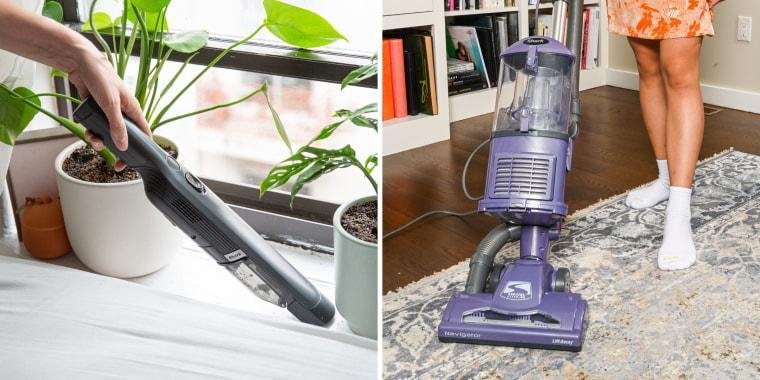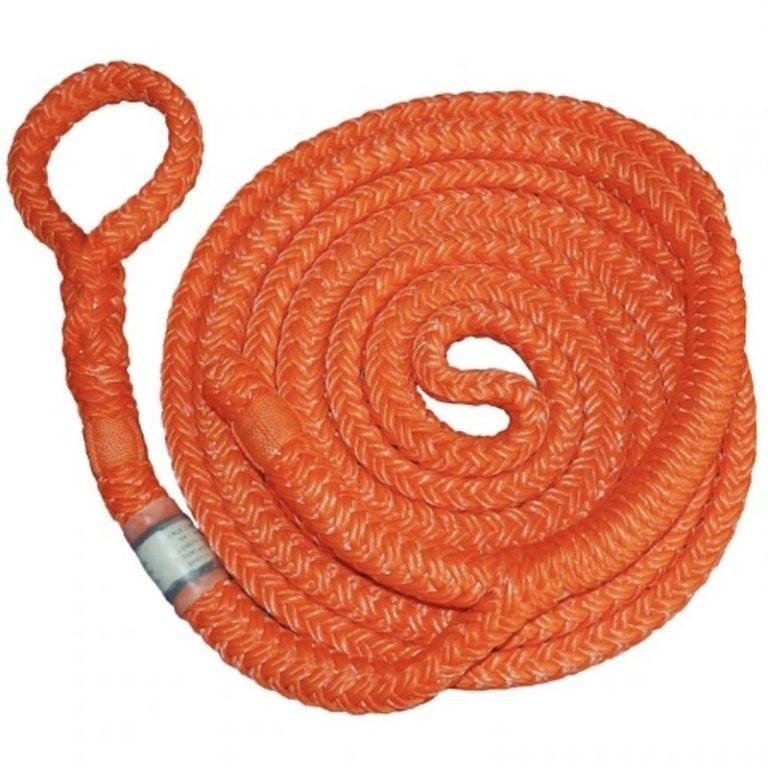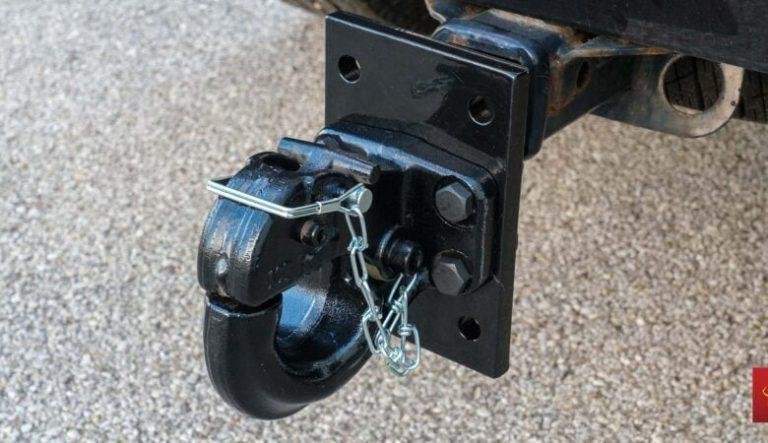Yes, a trailer should be level when towing to maintain stability and safe driving conditions. When a trailer is not level, it can cause issues such as poor weight distribution, reduced braking effectiveness, and decreased fuel efficiency.
Additionally, an unlevel trailer may lead to swaying or fishtailing, making it difficult to control the vehicle. It is important to ensure that the trailer is properly leveled before beginning a towing journey to ensure a safe and smooth driving experience.

Credit: www.amazon.com
Importance Of Proper Trailer Leveling
Proper trailer leveling is crucial when towing, ensuring stability and safety on the road. A level trailer helps to distribute weight evenly, preventing swaying and potential accidents.
Optimum Performance: Ensuring Safety And Efficiency
Proper trailer leveling is essential for achieving optimum performance when towing. When a trailer is not level, it can lead to various issues such as decreased safety, reduced efficiency, and potential damage to both the trailer and the towing vehicle.
Here’s why maintaining proper trailer level is crucial:
- Safety first: A level trailer ensures stability and improves the overall safety of the towing experience. When a trailer is unlevel, it can sway from side to side, making it more prone to accidents or rollovers. By ensuring proper leveling, you can minimize the risk of mishaps on the road, keeping yourself and others safe.
- Efficiency matters: When your trailer is level, it allows for efficient weight distribution, reducing strain on your vehicle’s suspension system. This means your towing vehicle will operate more smoothly and consume less fuel, saving you money in the long run. It also improves handling and control, making your towing experience a lot easier and stress-free.
- Preventing tire wear and damage: Uneven trailer leveling can cause excessive wear and tear on your trailer tires. When the weight is not evenly distributed, certain tires may be subjected to more stress than others, leading to premature wear and potential blowouts. Proper leveling ensures that tire load is distributed evenly, prolonging their lifespan and reducing the risk of tire damage.
- Maintaining proper weight distribution: Proper trailer leveling allows for even weight distribution between the front and rear axles of your towing vehicle. This helps maintain stability, traction, and braking efficiency. When a trailer is unlevel, it can place excessive weight on the tongue or rear axle, compromising the vehicle’s performance and potentially causing damage to the suspension, brakes, or transmission.
To summarize, proper trailer leveling is crucial for achieving optimum performance, safety, and efficiency when towing. It prevents tire wear and damage, ensures proper weight distribution, and enhances the overall towing experience. By taking the time to level your trailer correctly, you can enjoy a smoother and safer journey, while also prolonging the lifespan of your vehicle and trailer.
Factors To Consider For Proper Leveling
Proper leveling is crucial when towing a trailer, as it ensures stability and improves safety. Factors like weight distribution, tongue weight, and suspension play a significant role in achieving the right level for smooth and secure towing. Always consider these factors to ensure a balanced and comfortable towing experience.
Should A Trailer Be Level When Towing?
Heading: Factors To Consider For Proper Leveling
Bullet points:
- Trailer load distribution: Properly distributing the weight inside the trailer is crucial for maintaining level towing.
- Unevenly distributed weight can lead to unstable towing conditions and affect the handling of the trailer.
- Ensure that the heavy items are placed closer to the trailer’s axles to maintain a balanced load.
- Use cargo straps and other securing methods to prevent items from shifting during transport.
Bullet points:
- Tongue weight: Maintaining the correct tongue weight is vital for safe and level towing.
- The tongue weight, which refers to the downward force exerted on the hitch ball, should typically be around 10-15% of the trailer’s total weight.
- Too much tongue weight can overload the rear suspension of the towing vehicle, leading to poor handling. Conversely, insufficient tongue weight can cause trailer sway and instability.
- Use a tongue weight scale or consult the trailer’s owner’s manual to determine the appropriate tongue weight.
Bullet points:
- Hitch height: Ensuring the proper hitch height is essential for a level towing experience.
- The height of the hitch should be adjusted to match the height of the trailer’s coupler.
- A mismatch in hitch height can result in uneven weight distribution and affect the alignment of the trailer and towing vehicle.
- Measure the height of the hitch and trailer’s coupler, making necessary adjustments to maintain a level position.
By considering the factors mentioned above, you can ensure that your trailer is level when towing. Proper trailer load distribution, maintaining the correct tongue weight, and adjusting the hitch height will contribute to a safe and stable towing experience. Remember, paying attention to these factors will help you avoid potential hazards on the road.
Tools And Techniques For Accurate Leveling
Maintaining a level trailer while towing is essential to ensure accurate leveling. By utilizing the right tools and techniques, you can achieve proper weight distribution, increased stability, and safer towing experiences.
Leveling your trailer when towing is a crucial aspect of safe and efficient towing. But how do you ensure that your trailer is level? In this section, we will explore the tools and techniques for accurate leveling, including leveling devices and apps, adjusting the hitch height, and using weight distribution hitches.
So let’s dive in and discover how to achieve the perfect level for your trailer.
Leveling Devices And Apps:
- Bubble level: A traditional and straightforward tool, a bubble level helps you visually determine whether your trailer is level or not. Simply place it on a flat surface inside your trailer and adjust accordingly.
- Smartphone apps: With technological advancements, there are now smartphone apps available that can provide accurate leveling measurements using your phone’s sensors. These apps are convenient and easy to use, making them a popular choice among trailer owners.
Adjusting The Hitch Height:
- Jockey wheel: One technique for achieving the proper hitch height is to use a jockey wheel. By adjusting the height of the wheel, you can raise or lower the front of the trailer to achieve a level towing position.
- Adjustable hitch: If your trailer hitch has an adjustable height feature, you can easily modify the hitch height to align it with your towing vehicle. This allows for precise leveling of the trailer.
Using Weight Distribution Hitches:
- Weight distribution hitches distribute the weight of the trailer evenly between the towing vehicle and the trailer’s axles. This helps to improve stability and reduce sway during towing. By properly setting up and adjusting the weight distribution hitch, you can achieve a level towing position.
Accurate leveling is essential to ensure a smooth and safe towing experience. By utilizing leveling devices and apps, adjusting the hitch height, and using weight distribution hitches, you can confidently tow your trailer at the optimum level. So before hitting the road, take the time to properly level your trailer and enjoy a stress-free towing journey.
Safety Risks And Handling Issues
Maintaining a level trailer while towing is essential to ensure safety and minimize handling issues. A level trailer helps distribute weight evenly, preventing swaying and improving stability on the road.
Poor Braking And Steering Control
- Trailer leveling plays a crucial role in maintaining optimal braking and steering control while towing.
- When a trailer is not level, it can lead to poor weight distribution, resulting in inadequate braking performance and reduced steering control.
- Here are some safety risks and handling issues associated with towing an unlevel trailer:
- Lack of weight distribution: An unlevel trailer can cause excessive weight to be placed on either the front or rear wheels of the towing vehicle, leading to imbalanced weight distribution. This imbalance can significantly impact braking performance, making it difficult to stop the vehicle safely.
- Decreased braking efficiency: When a trailer is not level, it may cause the brakes to bear an uneven load, reducing their effectiveness. This can result in longer braking distances and a higher risk of accidents, especially in emergency situations.
- Impaired steering response: An unlevel trailer can adversely affect the steering response of the towing vehicle. It can create instability and make it challenging to maintain control, especially when navigating curves or making turns.
Uneven Tire Wear And Blowouts
- Proper trailer leveling is essential to ensure even weight distribution on all tires. Failure to maintain level towing can lead to uneven tire wear and an increased risk of blowouts. Here are the associated issues to consider:
- Uneven tire wear: When a trailer is not level, it causes uneven weight distribution on the tires. This imbalance can lead to uneven tire wear, with some tires wearing out faster than others. Uneven tire wear reduces tire lifespan and compromises overall safety.
- Increased risk of blowouts: Uneven weight distribution due to an unlevel trailer can put excessive stress on certain tires, making them more prone to blowouts. A blowout can cause loss of control, damage to the trailer, and potentially endanger the lives of the driver and passengers.
Increased Risk Of Jackknifing
- Jackknifing is a terrifying situation where the trailer swings out and aligns at an angle with the towing vehicle, resulting in a loss of control. An unlevel trailer can increase the risk of jackknifing. Here’s why:
- Instability during emergency maneuvers: When a trailer is unlevel, it can create instability during sudden maneuvers or adverse road conditions. This instability increases the risk of the trailer swinging out of control, potentially leading to jackknifing.
- Loss of traction and control: Uneven weight distribution caused by an unlevel trailer can affect the overall traction between the tires and the road surface. This loss of traction can further contribute to jackknifing, as it becomes challenging to maintain control over the trailer.
Remember, maintaining a level trailer when towing is critical for safety. It ensures proper weight distribution, optimal braking and steering control, prevents uneven tire wear and blowouts, and reduces the risk of jackknifing. Always take the time to properly level your trailer before hitting the road.
Impact On Towing Vehicle
A level trailer while towing is essential to maintain the stability and balance of the towing vehicle. It ensures safer handling, prevents excessive wear and tear on the vehicle, and improves fuel efficiency.
Trailer towing is a common practice for many vehicle owners, whether it’s for recreational purposes or hauling heavy loads. When towing a trailer, it’s essential to ensure that it is level for a variety of reasons. One particular aspect worth considering is the impact on the towing vehicle itself.
In this section, we will explore how towing with an unlevel trailer can create strain on suspension and steering components, reduce fuel efficiency, and lead to premature wear on brakes.
Strain On Suspension And Steering Components:
- Uneven weight distribution caused by an unlevel trailer can put excessive strain on the suspension system of the towing vehicle.
- This strain can lead to accelerated wear and tear on suspension components such as shocks, struts, and springs.
- Uneven weight distribution can also impact the steering components, causing increased stress on steering linkage and tie rods.
- Over time, this strain can result in costly repairs and compromised driving safety.
Reduced Fuel Efficiency:
- Towing with an unlevel trailer can negatively affect the aerodynamics of the towing vehicle.
- When the trailer is not level, it creates additional drag, causing the vehicle’s engine to work harder to maintain speed.
- The increased workload on the engine results in reduced fuel efficiency and increased fuel consumption.
- By ensuring that the trailer is leveled, you can help optimize the vehicle’s aerodynamics, thereby improving fuel efficiency and saving on fuel costs.
Premature Wear On Brakes:
- An unlevel trailer can lead to uneven weight distribution, putting excessive strain on the towing vehicle’s brakes.
- Uneven weight distribution can cause uneven brake pad wear and result in premature wear on the brake system.
- The additional strain on the brakes also increases the risk of brake overheating, leading to decreased braking performance and potential brake failure.
- To avoid costly brake repairs and ensure safe towing, it is crucial to ensure that the trailer is level.
Properly leveling your trailer while towing is essential for not only the safety of your load but also for the well-being of your towing vehicle. By avoiding an unlevel trailer, you can prevent strain on suspension and steering components, improve fuel efficiency, and protect your brakes from premature wear.
Make it a habit to check and adjust the trailer’s level before hitting the road, ensuring a smooth and safe towing experience.
Steps To Properly Level A Trailer
Leveling a trailer is essential for safe towing. Properly leveling your trailer helps distribute weight evenly, ensuring a smooth and stable ride, reducing excessive wear on tires and suspension, and preventing potential accidents on the road. Follow these steps to achieve proper trailer leveling and enhance your towing experience.
Evaluating load distribution:
- Check the load distribution by ensuring that the trailer is level when it is hitched to the towing vehicle.
- Look for signs of an uneven distribution such as the trailer tilting forward or backward.
- Inspect the trailer’s height in relation to the towing vehicle, making sure they are parallel.
Adjusting tongue weight:
- Determine and adjust the tongue weight, which is the downward force exerted on the hitch ball by the trailer’s tongue.
- Use a tongue weight scale or consult your trailer’s manual to find the recommended tongue weight for your specific trailer.
- Adjust the load distribution by moving items within the trailer to achieve the appropriate tongue weight.
- Shift weight towards the front or back of the trailer to achieve balance.
Utilizing weight distribution systems:
- Consider using weight distribution systems if your trailer requires additional balance.
- These systems redistribute the tongue weight to the axles of both the towing vehicle and the trailer.
- Install the weight distribution system according to the manufacturer’s instructions, ensuring it is properly set up and adjusted.
- Verify that the trailer is level after installing and adjusting the weight distribution system.
By following these steps, you can ensure that your trailer is properly leveled when towing. This will help improve stability, handling, and overall safety during your journey.
Regular Monitoring And Adjustments
Regular monitoring and adjustments are essential when towing a trailer to ensure it remains level and balanced. Don’t overlook this important aspect to ensure a smooth and safe towing experience.
Towing a trailer may seem like a straightforward task, but ensuring that it is level during travel is crucial. Regular monitoring and adjustments play a significant role in maintaining a balanced and safe towing experience. To keep your trailer level, it is essential to follow a maintenance and inspection checklist, as well as pay attention to proper leveling during travel.
Maintenance And Inspection Checklist:
- Regularly inspect the trailer hitch and coupler for any signs of damage or wear.
- Ensure that the trailer’s tires are properly inflated.
- Check the trailer’s suspension system, including the springs, shocks, and axles.
- Verify that the trailer’s lights and brakes are in proper working order.
- Examine the weight distribution system and adjust it if necessary.
- Inspect the trailer’s frame and body for any signs of corrosion or structural issues.
- Lubricate the trailer’s moving parts, such as the hitch, to reduce friction and enhance performance.
Proper and routine maintenance is essential to prevent any unexpected issues and keep your trailer in optimal condition. By following a comprehensive inspection checklist, you can identify potential problems before they escalate and ensure a safe towing experience.
Ensuring Proper Leveling During Travel:
- Begin by attaching the trailer to the tow vehicle and ensuring that the hitch is secure.
- Use a leveling tool, such as a bubble level or electronic leveling system, to check the trailer’s levelness.
- Adjust the weight distribution system to distribute the weight evenly between the tow vehicle and the trailer.
- Make sure the trailer’s tongue weight falls within the recommended range, generally around 10-15% of the trailer’s total weight.
- Ensure that the trailer is not tilted to one side by adjusting the leveling jacks or blocks if needed.
- Periodically monitor the trailer’s leveling during travel, especially after encountering road bumps or uneven terrain.
- If necessary, make adjustments to the leveling system to maintain stability and control.
Proper leveling of the trailer is crucial for various reasons, including improving fuel efficiency, reducing tire wear, and enhancing overall towing safety. By taking the time to monitor and adjust as needed, you can ensure a smooth and secure towing experience.
Remember, regular monitoring and adjustments are essential for maintaining a level trailer during towing. By following a maintenance and inspection checklist and paying attention to proper leveling during travel, you can enhance safety and enjoy a hassle-free towing experience.
Frequently Asked Questions Of Should A Trailer Be Level When Towing?
Is It Ok For Trailer To Not Be Level?
No, it is not ok for a trailer to not be level. A trailer that is not level can cause a variety of problems, including poor handling, uneven weight distribution, and potential damage to the trailer or its contents. When a trailer is not level, it can put extra strain on the tires, suspension, and hitch, leading to increased wear and tear and potentially dangerous situations on the road.
It is important to ensure that the trailer is level both when it is empty and when it is loaded, as the weight distribution can change the angle at which the trailer sits. Properly leveling a trailer is crucial for safe and efficient towing.
Regular maintenance checks should include checking the trailer’s level and making any necessary adjustments before hitting the road.
Should I Level My Truck If I Tow A Trailer?
Leveling your truck can be beneficial when towing a trailer. It helps maintain proper weight distribution, improving stability and control while on the road. By leveling your truck, you ensure that the weight of the trailer is evenly distributed, minimizing the risk of your vehicle swaying or tipping.
The leveling process involves adjusting the height of your truck’s suspension system. This helps to bring the front and rear of the vehicle to the same height, ensuring a balanced load distribution. With a leveled truck, you can tow with confidence, knowing that your vehicle is properly equipped to handle the extra weight.
Remember, when towing a trailer, it’s important to follow safety guidelines and consult your vehicle’s manual for specific recommendations. Leveling your truck can help enhance towing performance, ensuring a safer and smoother towing experience.
Why Is It Important For A Trailer To Be Level?
A level trailer is important to ensure stability, safety, and good towing performance. A level trailer distributes weight evenly, preventing excessive strain on specific parts and reducing the risk of tipping or swaying. When a trailer is level, it provides better handling and improved braking, making it easier to navigate turns and stop effectively.
Additionally, a level trailer allows for proper alignment of the hitch, ensuring optimal towing capabilities and reducing stress on the towing vehicle. By maintaining a level position, the trailer’s suspension system can function optimally, providing a smooth and comfortable ride for both the trailer and its occupants.
Overall, leveling a trailer is crucial for safe and efficient towing, preventing damage to the trailer and ensuring a pleasant towing experience.
Is It Better To Have Trailer Hitch Too High Or Too Low?
A trailer hitch should neither be too high nor too low. A well-positioned hitch ensures safe and proper towing. Having a trailer hitch too high can lead to an unbalanced and unstable towing experience. It increases the risk of swaying, improper weight distribution, and potential damage to the trailer and towing vehicle.
On the other hand, having a trailer hitch too low can result in dragging and scraping on the ground, especially when going over bumps or uneven terrain. This can cause damage to the hitch and the trailer itself. To determine the correct height for a trailer hitch, it is important to consider the height and weight of the trailer, as well as the towing vehicle.
A balanced and level towing setup provides better control and stability on the road. In conclusion, it is better to have a trailer hitch positioned at the appropriate height to ensure safe and smooth towing.
Conclusion
To sum up, ensuring that your trailer is level when towing is crucial for a smooth and safe journey. It helps distribute weight evenly, ensures optimal braking and handling, and reduces the risk of accidents. By following basic steps such as using a leveling tool, adjusting the hitch height, and properly loading your trailer, you can achieve the desired levelness.
Neglecting this aspect can lead to trailer sway, poor fuel efficiency, and increased tire wear. Moreover, keeping your trailer level also protects your vehicle’s suspension system from unnecessary strain. So, whether you are a seasoned traveler or a beginner, make it a priority to check the levelness of your trailer before hitting the road.
By doing so, you can enjoy a comfortable, well-balanced towing experience and reach your destination safely. Remember, when it comes to towing, a level trailer is the way to go.






